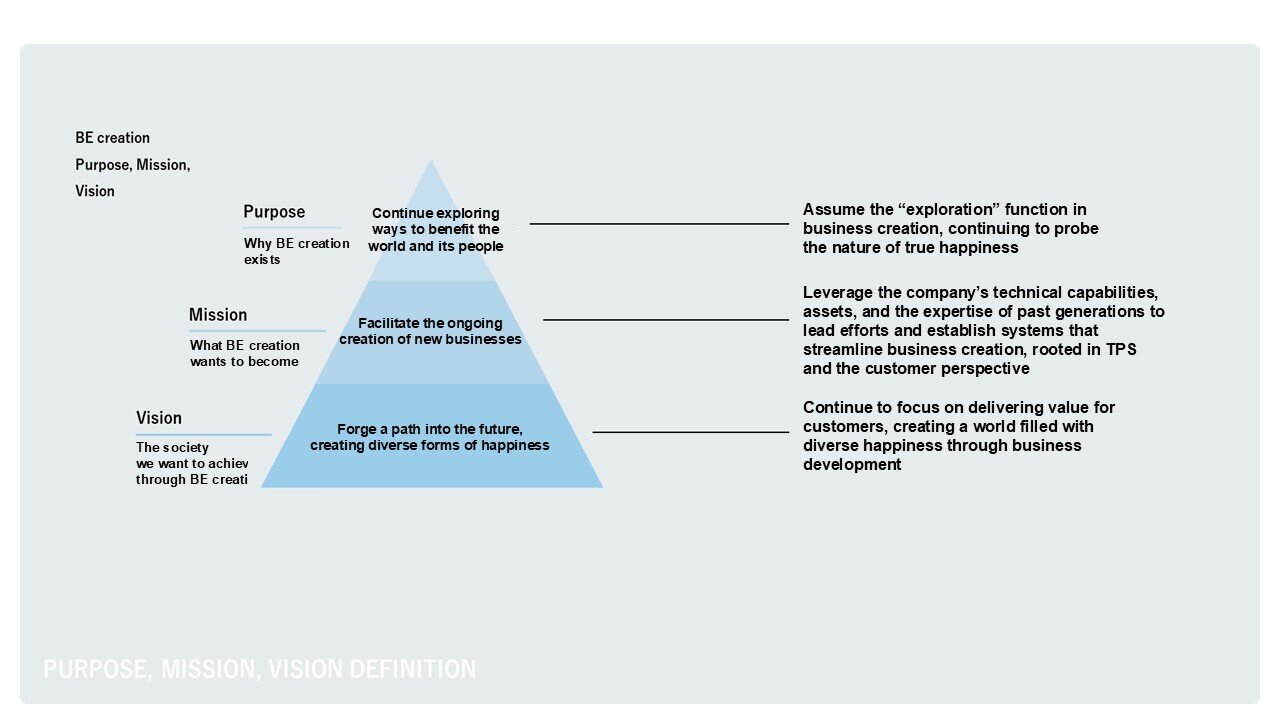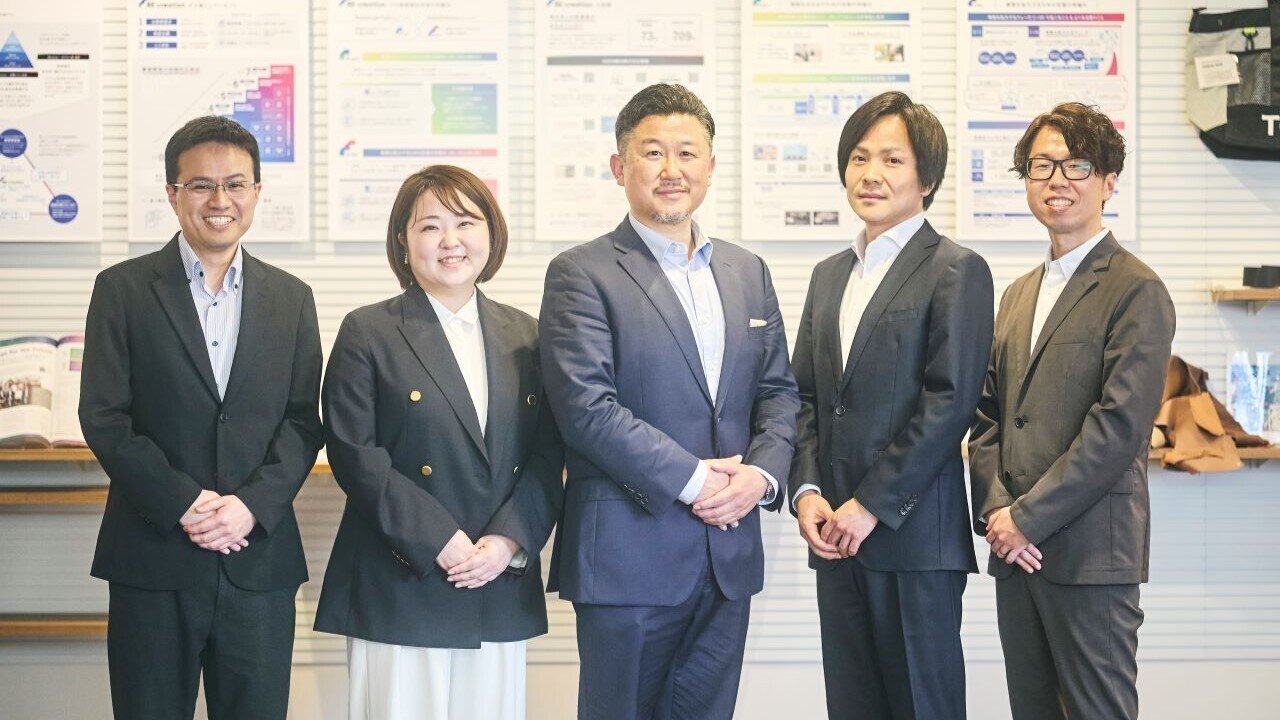
Toyota has a history of launching and developing new businesses. This series showcases employees who carry on the startup spirit by pursuing new ventures. For this article, we spoke with the team tasked with supporting business creation and expansion, along with the owners of projects launched through the program.

BE creation’s starting point
“I want to help others.”
“I want to harness technology to tackle new challenges.”
At BE creation(Japanese only), Toyota’s program for generating new businesses, ideas fueled by such aspirations can take flight.
“Our businesses today have inherited the DNA (Toyota’s roots) of working for the country, for someone other than ourselves,” Business Development Group Chief Officer Isao Nakanishi told us when we spoke for the first article in this series.
“Toyota has a culture where leaders support employees in giving something new a try, when there is a sound rationale behind it,” added President Hirofumi Inoue of the Advanced R&D and Engineering Company.
The BE creation framework was created to guide new businesses to success. We spoke with those involved in its core system, B-pro, which handles proposal submissions; E-biz, which supports business implementation; and project owners who launched ventures through these platforms. What emerged from all these voices was a common understanding: Be Creation is also a mechanism for supporting people who earnestly strive to solve others’ problems.
How the B-pro system supports first-time challenges
B-pro is Toyota’s system for new business idea submissions. It is open to a broad spectrum: regular employees, staff rehired after reaching retirement age (professional partners), and employees of group companies.
Of the roughly 300 proposals received each year, some 20 to 30 clear the document and interview screening. These proceed through two further rounds of screening—known as MVP 1 & 2—until, about a year later, only three or four emerge from the final reviews.
The backdrop to setting up B-pro was Toyota’s transformation into a mobility company.
Masari Nagata, BE creation Group Manager, Business Development Dept., New Business Planning Div.
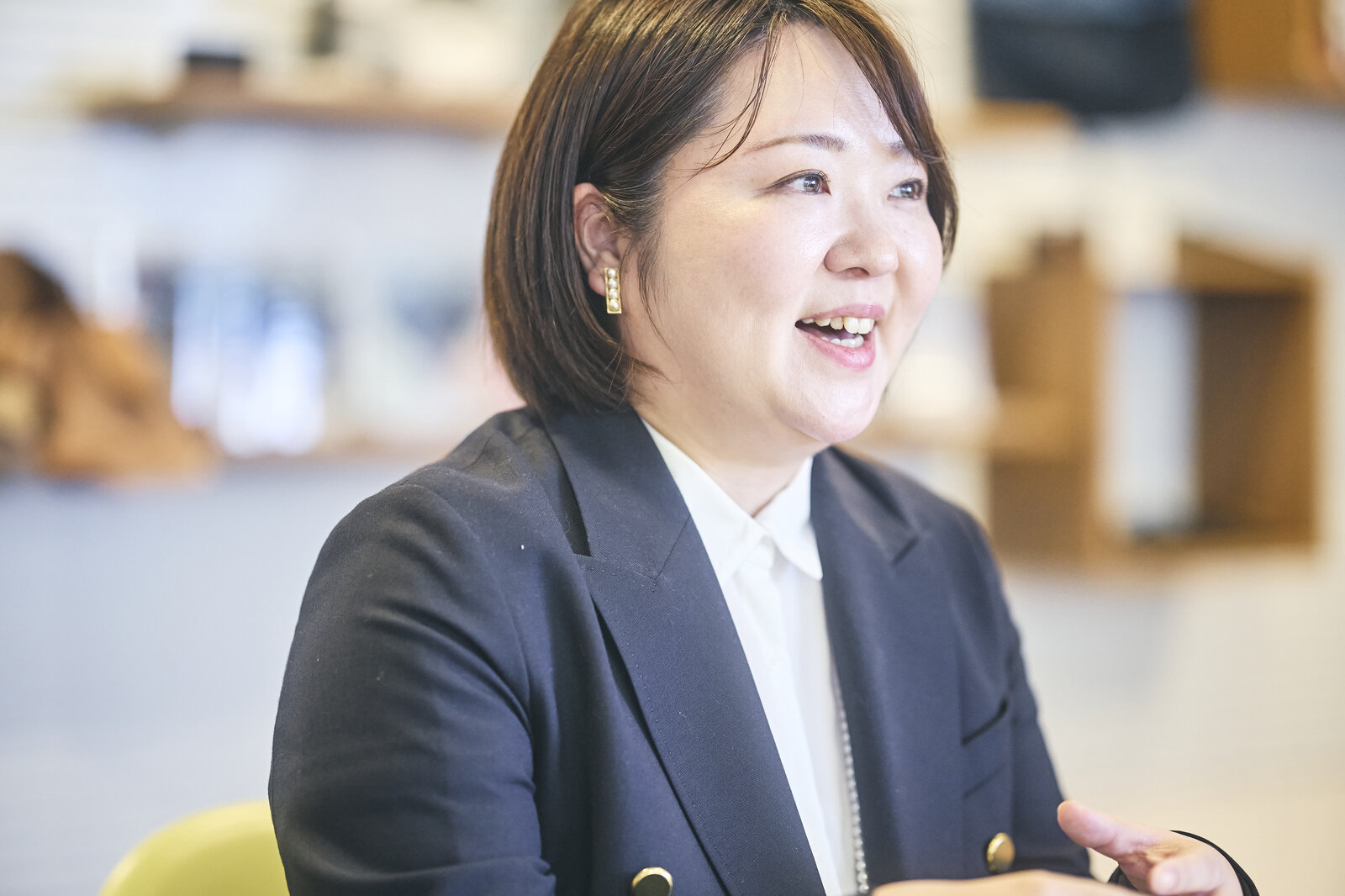
B-pro’s starting point was the Future Scenario & Concept initiative for planning new vehicle concepts, spearheaded by the Future Project Department, the forerunner of our current BE creation Group.
Later, with Toyota seeking to become a mobility company, we wanted to cast the net wider than simply concept vehicles and decided to create an internal submission system where anyone could make a business proposal. The current B-pro was born out of this renewal process.
Submitting is as simple as registering for the B-pro newsletter, then filling out the entry form via the company intranet.
Awareness of the program is gradually spreading within Toyota and group companies. Each year, a growing number of submitters go to speak with customers before even making their proposals, recording real-world opinions and needs.
Group Manager Nagata
In 2025, we have set up a learning community called BE academia (formerly the B Dojo). Even for those who may not be interested in new businesses right now, we offer expert lectures and guides that present diverse work styles and careers, cultivate willpower, and explain aspects such as how to structure problems and organize ideas.
We also host online seminars, workshops, and meetups, all of which boost the level of submissions.
In the initial stages, however, B-pro staff primarily look for three things: the significance for Toyota to pursue the project (i.e. its strategic rationale), willpower, and the underlying experience/customer needs hypothesis. Proposals are scored on how well they balance these three factors.
The interview screenings are about assessing whether individuals and teams are passionate and have what it takes to see the business through.
Takashi Fujiwara, Project Creation Group Manager, Project Foundation Development Dept., Advanced Project Promotion Div.
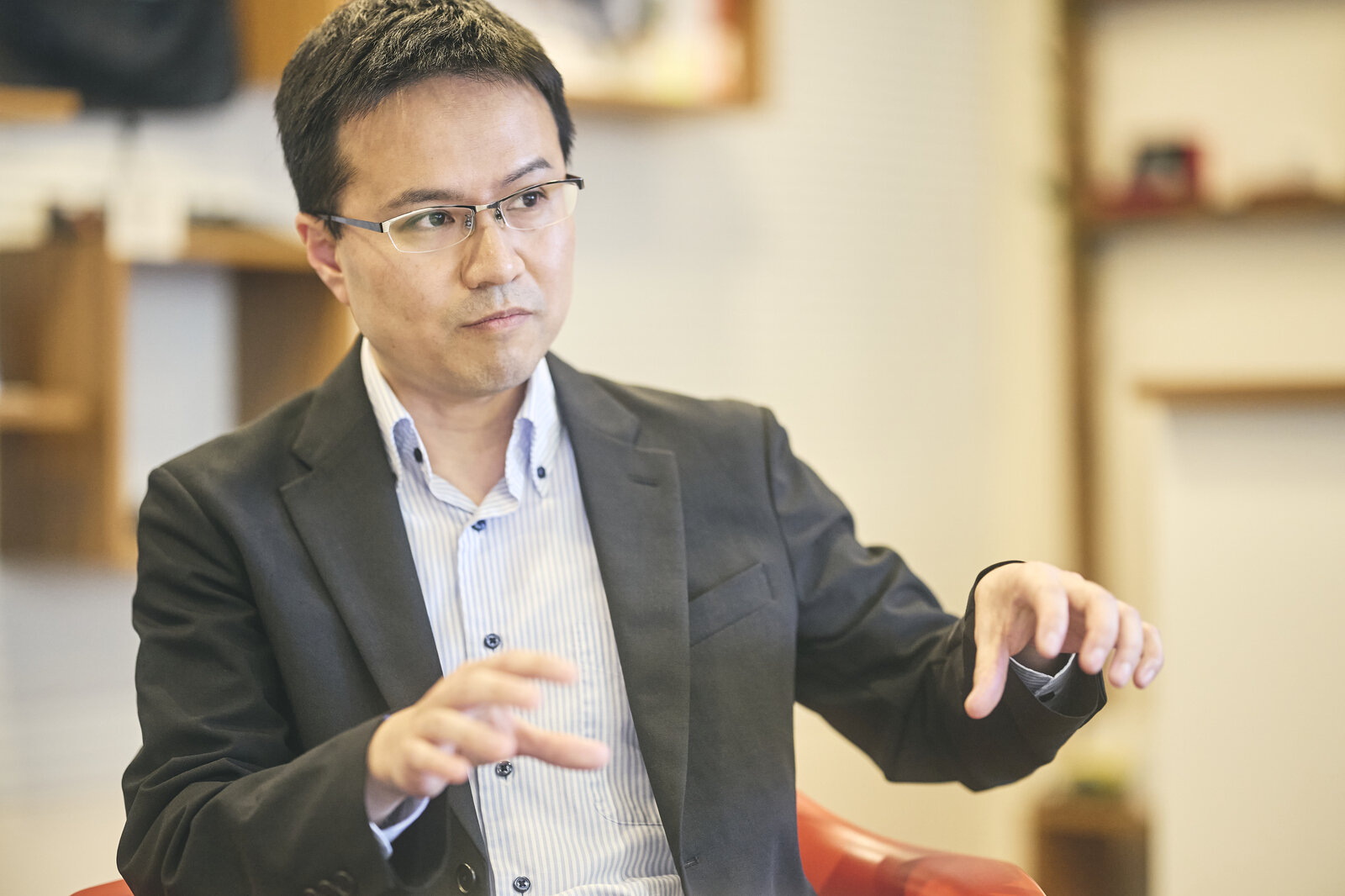
From there, screenings are conducted over the next year in stages—at three months, another three months, and then six months later—up to the final review.
With each step, the criteria we look for ramp up, but the key component is the will: why do we want to pursue this venture?
Willpower is cultivated alongside customers
This sentiment was echoed by Chief Officer Nakanishi, who told us, “Ultimately, what matters is the project owner’s strength of will.” Yet by submitting a new business proposal, haven’t the authors already demonstrated that they are passionate about the project?
Group Manager Fujiwara
Willpower is also something you cultivate.
For example, meeting with customers and pledging to solve their problems, going through the trial-and-error process, and then tasting the frustration of being unable to find a solution. Willpower is forged by repeating that cycle. You won’t get to the finish line on individual or team passion alone.
Faced with customers in need and the expectation that you can solve their problems, you take on the challenge, determined to find a solution. In such an environment, and the sense of ownership it requires, the will steadily grows stronger.
Kazunori Kato, Assistant Manager, Technology External Sales Group, Business
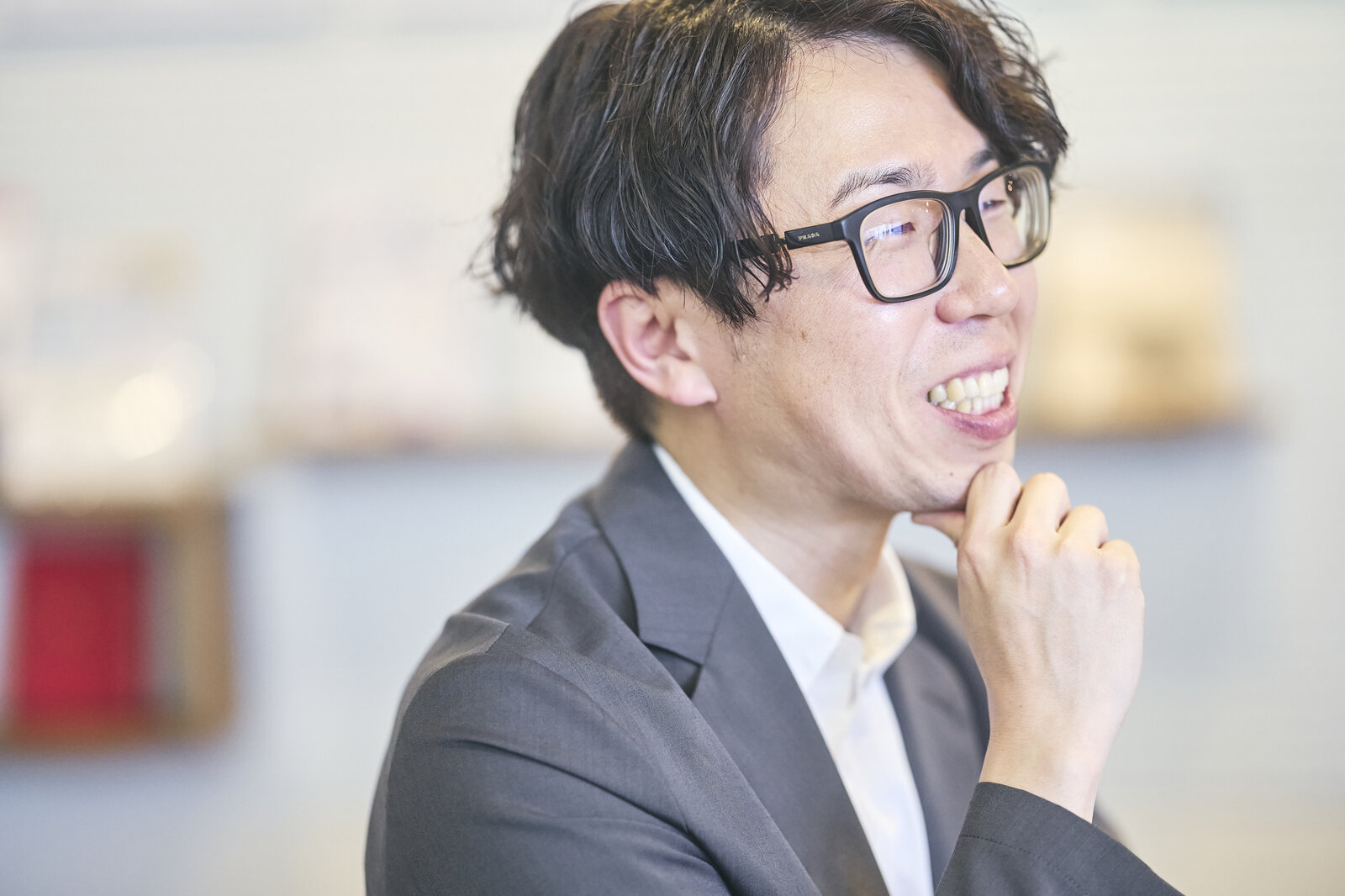
That was where I struggled as well. Although I was keen to solve the problem at hand, I had a hard time articulating why I wanted to solve it.
I also struggled with how to align that will or passion with the company’s mission.
Starting with the discovery of customer needs, the expected level also rises with each stage, from presenting the business hypothesis to verification and business planning.
Will must also be accompanied by legwork, with teams required to meet frequently with customers. In doing so, some may realize that the project they originally envisioned is not viable as a business.
Group Manager Nagata
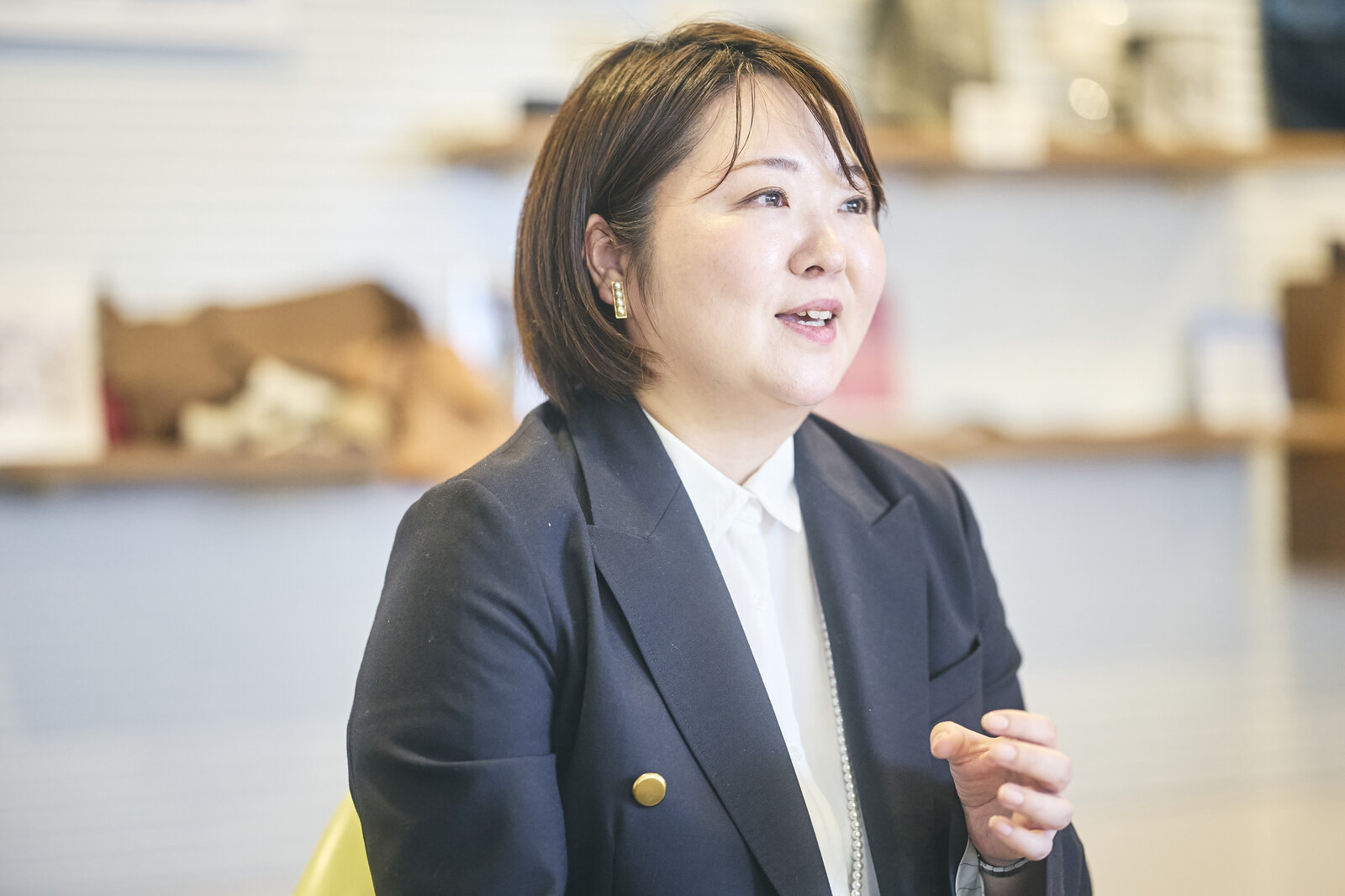
To establish a business, you also need to know when to pivot. In fact, I would like to see projects pivot more often.
The SayuU (Japanese only)GPS tracker is one idea that changed greatly from its original concept to the current form.
Take action, run into trouble, come up with a hypothesis, and take action again. By repeating this process, aspiring business owners gain many insights and significant personal growth.
Assistant Manager Kato
Being an engineer, I assumed that as long as the technology was good, it would naturally spread.
However, technology will only spread if people are made aware of it, use it for themselves, and are satisfied. Even if the technology remains the same, it might suddenly be embraced by customers simply because their situation or environment has changed.
Our sales efforts gave me a deeper appreciation of the fact that people are always at the heart of any technology.
Through BE creation, every project is assigned support staff known as “sherpas,” who work side-by-side with proposal originators to develop their ideas.
For the screenings that determine whether a project moves on to the next stage, BE creation brings in outside professionals in addition to its own staff.
“A key part of these sessions is the Q&A exchange,” explains Nagata.
The process is less about “judging” than “discussing,” more “nurturing” than “winnowing.” With this mindset, the review team also takes its job seriously.
When a project officially passes the final review, it advances to the seed phase, where the focus shifts to testing business feasibility.
E-biz expertise for new business success
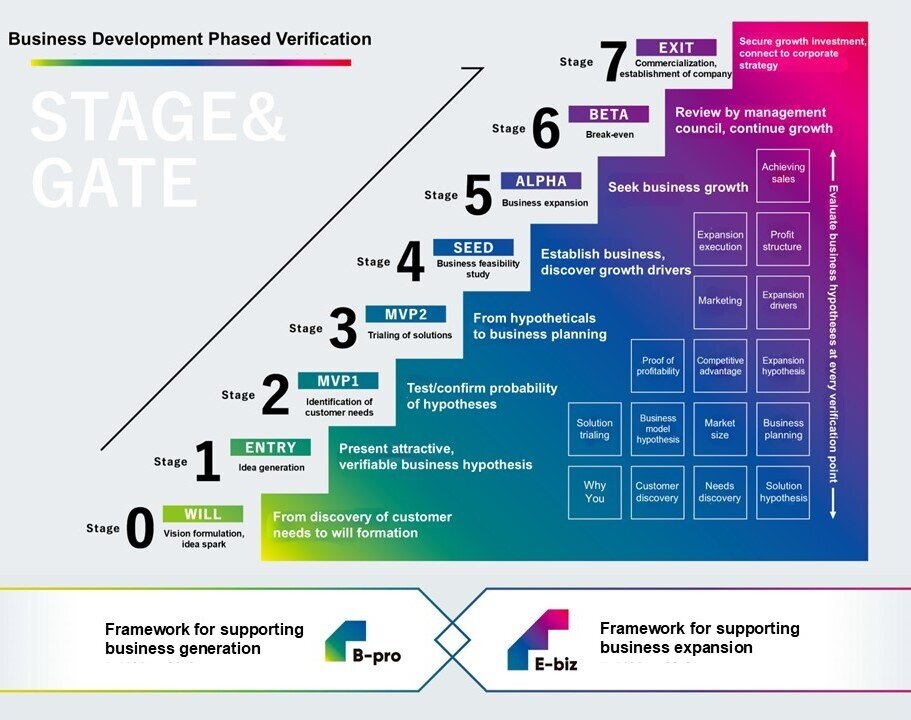
During stage four, the seed phase, many teams will send actual products or services out into the world.
The people behind these projects have diverse backgrounds, ranging from planning and development to design, production engineering, sales, and accounting. Unfortunately, Toyota—which operates mainly in the car industry—doesn’t have a wealth of expertise in expanding businesses in new areas.
This is where the “E-biz” system comes in, providing all manner of support for business expansion, including sales, marketing, and quality assurance to help sell products and services.
Taichi Goto, Project Manager, BE creation Group, Business Development Dept., New Business Planning Div.
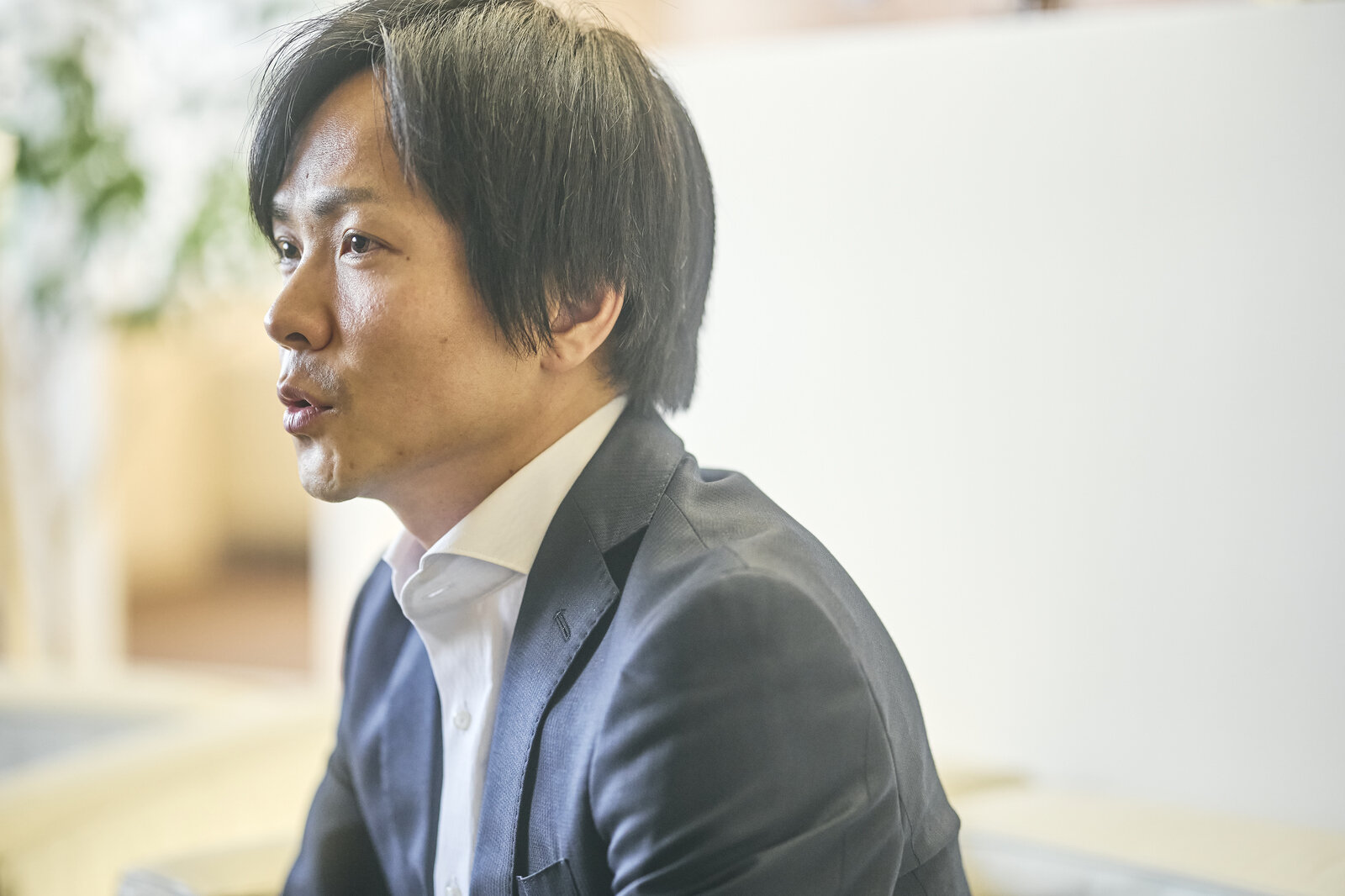
Although it remains true now, when E-biz first launched, the staff and outside experts worked particularly closely with those who submitted proposals, developing marketing strategies, accompanying them to business negotiations, and reviewing sales materials.
Bringing together this business know-how, we organized study sessions and collaborated with related departments to provide specific assistance, such as establishing standards and systems tailored to the quality assurance needs unique to new businesses.
The E-biz team built its expertise through an earnest approach to supporting new business expansion, never shying away from learning and trying ideas out for themselves.
In addition to using assets inside and outside Toyota to propel new businesses, now there are also moves to apply the knowledge and experience gained from these ventures back to the company’s core business.
Project Manager Goto
With assistance from various departments, including our legal, accounting, and intellectual property divisions, we’ve created a “corporate support package” system that brings everything under a single point of contact.
This approach helps us to tackle overlapping issues across departments and optimize internal rules.
The objective behind these efforts is to create a reproducible infrastructure that not only helps to grow the current crop of new businesses, but will also serve the projects that are sure to emerge around the company in the future.
As Toyota strives to transform itself into a mobility company, new businesses have also emerged outside of BE creation, including at the CV Company (responsible for commercial vehicles) and the Customer First Promotion Group, which oversees quality.
The hope is that sharing information from E-biz will contribute not only to increasing expertise, but also to the joint creation of corporate culture.
Project Manager Goto
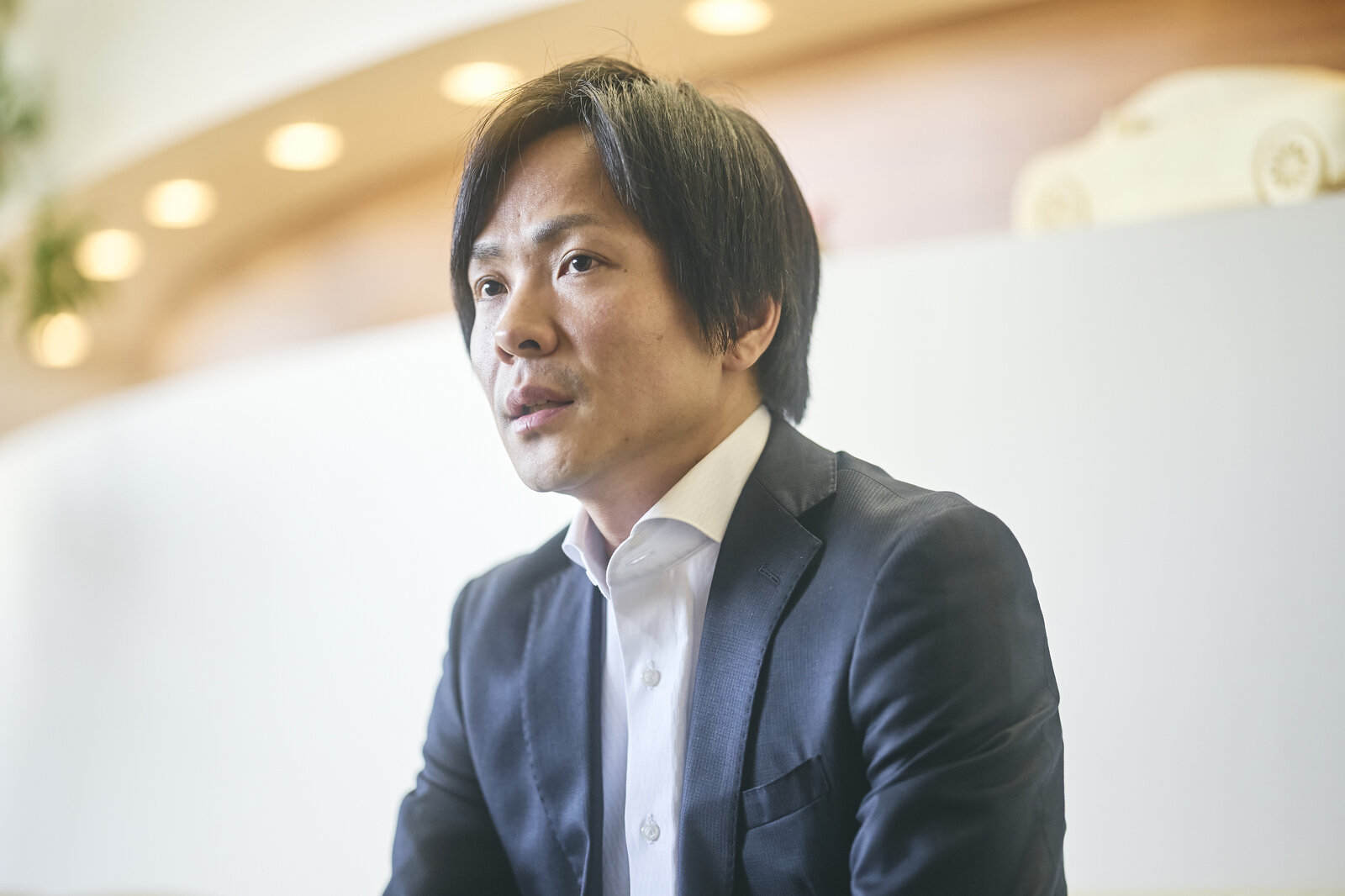
No matter where you attempt it within the company, creating and expanding a new business is fraught with difficulty. We are working in the hope that the E-biz system can be useful when you want to go beyond your area of expertise and tackle a project yourself from start to finish.
Engineers learn about sales, office staff learn monozukuri. Or someone with a sales background gets the opportunity to relearn the marketing and sales process. The experience of expanding a new business adds depth and breadth to people’s careers.
I believe that such diverse careers help make work and life rewarding in more diverse ways, which makes both the individual and the organization stronger.
The implementation and assistance that begins in the seed phase broadens the careers of both the project team and BE creation staff. As Toyota has discovered, it also contributes to more diverse work styles.
And now, BE creation has itself begun moving into a new phase.
Kenji Tadakuma, General Manager, Business Development Dept., New Business Planning Div.
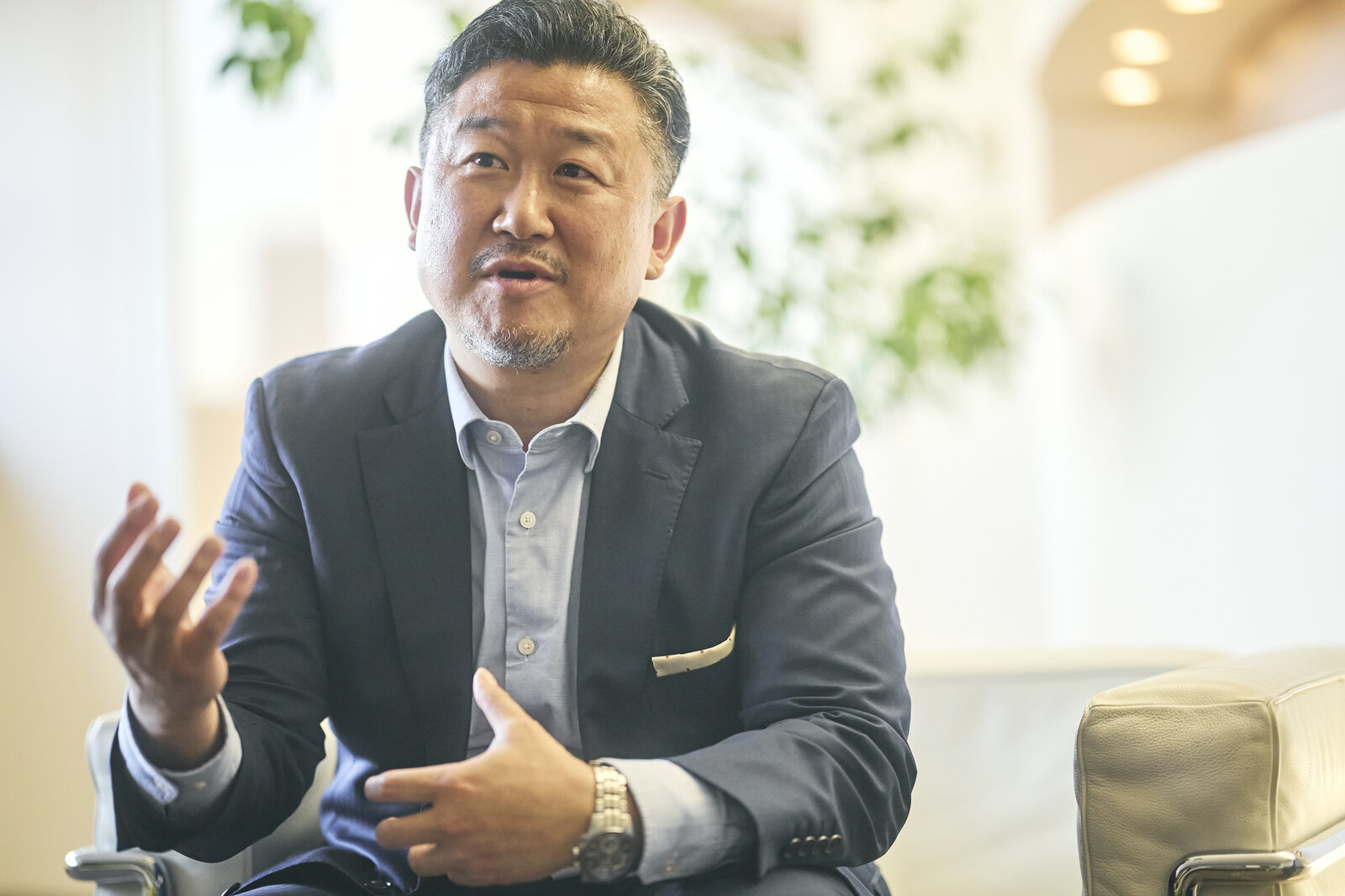
Last year, as a way to strengthen our foundations, we defined BE creation’s purpose, mission, vision, and values. With these as our guide, we want to continue moving steadily forward.
Prior to this, we were in the “try it and see” phase as part of Toyota’s transformation into a mobility company. That stage gave rise to the likes of DRIVE RECORDER119, SayuU, and WAVEBASE*. In our next phase, we want to define business domain groupings, such as “materials/data” and “safety/security,” and work to enlarge them while exploring new alliances.
*Links are in Japanese only
Until recently, B-pro had been divided into two courses: Free Theme, and the social issue-oriented Deep Dive.
From 2025, however, there have been three new additions: the Mobility Life course, for stimulating mobility demand; the Company Asset Promotion course, aimed at selling internal kaizen tools and systems outside Toyota; and the Dashcam Footage course, which seeks out business ideas that make use of dashcam data. By clearly identifying Toyota’s strengths, BE creation is looking to hone and refine its businesses.
A genuinely exhilarating genba
When it comes to launching a business within Toyota, motivations vary from person to person. Even so, new ventures are now an option for anyone seeking a greater challenge within the company.
There are people searching for something to captivate them, into which they can pour their passions. People who want to take ownership and steer a project. to move those around them, rather than waiting for others to act.
Perhaps they hope to work each day under the kind of pressure that energizes them, giving their all to advance the business.
To experience moments that move them to tears.
These people and can be found throughout the company.
Group Manager Fujiwara
Being involved in new businesses, you’re often there for moments when people are inspired to act. Even in our screening sessions, you can keenly feel their desire to help others.
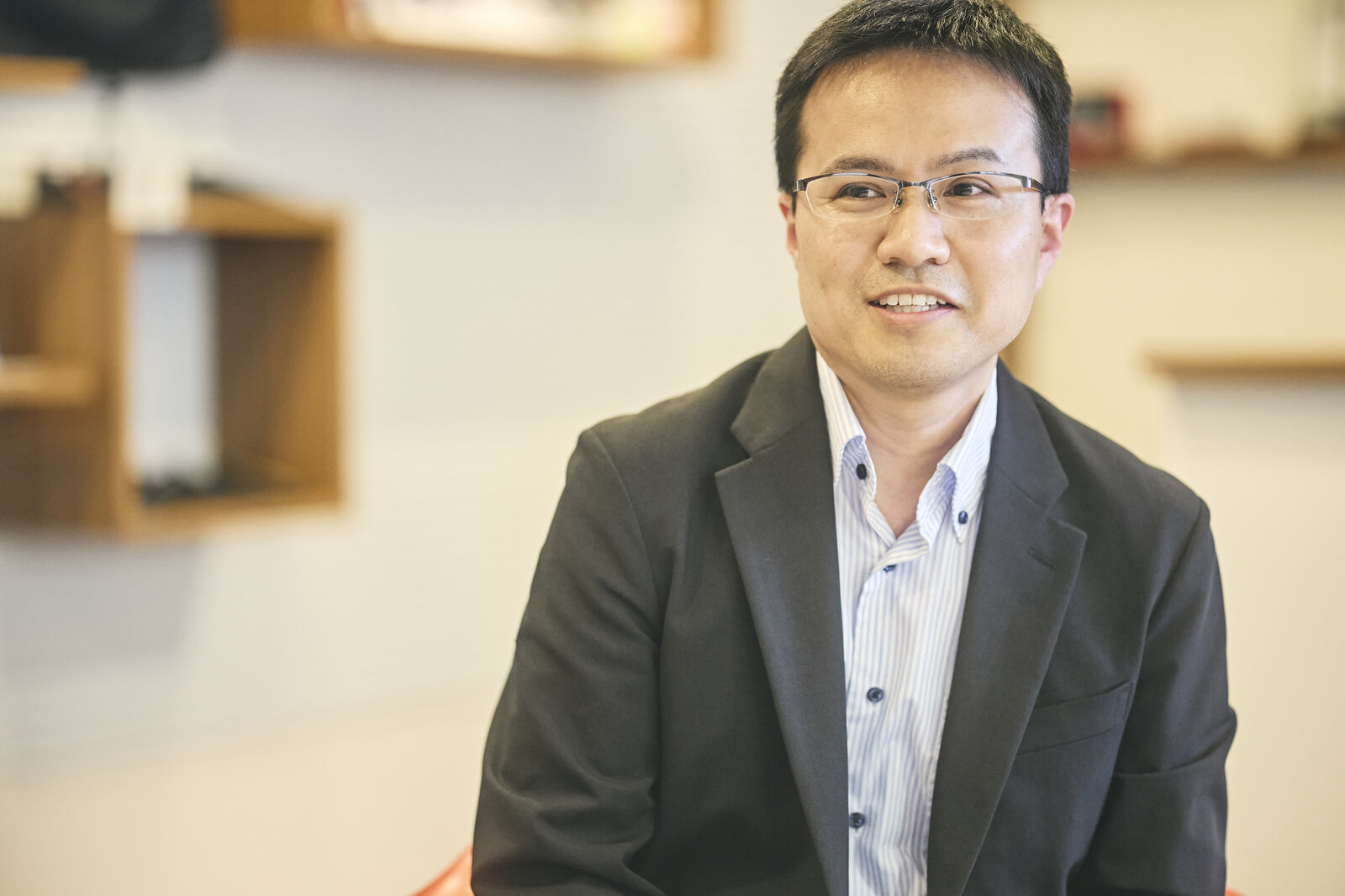
People shed tears, weeping at their own powerlessness when faced with society-scale issues… Everyone takes the challenge very seriously.
General Manager Tadakuma
New businesses run into all kinds of troubles. Many things happen out in the real world.
Of course, we carefully deal with each one, but when you’re starting a new business, everything is new.
To put it another way, this is proof that the business is moving forward.
While it’s a joy to see individual projects rise up, nothing surpasses the feeling of people coming together and working toward a shared goal. I feel fortunate to be part of that circle.
Lastly, we asked Tadakuma what kind of people he would like to see taking on the challenge.
General Manager Tadakuma
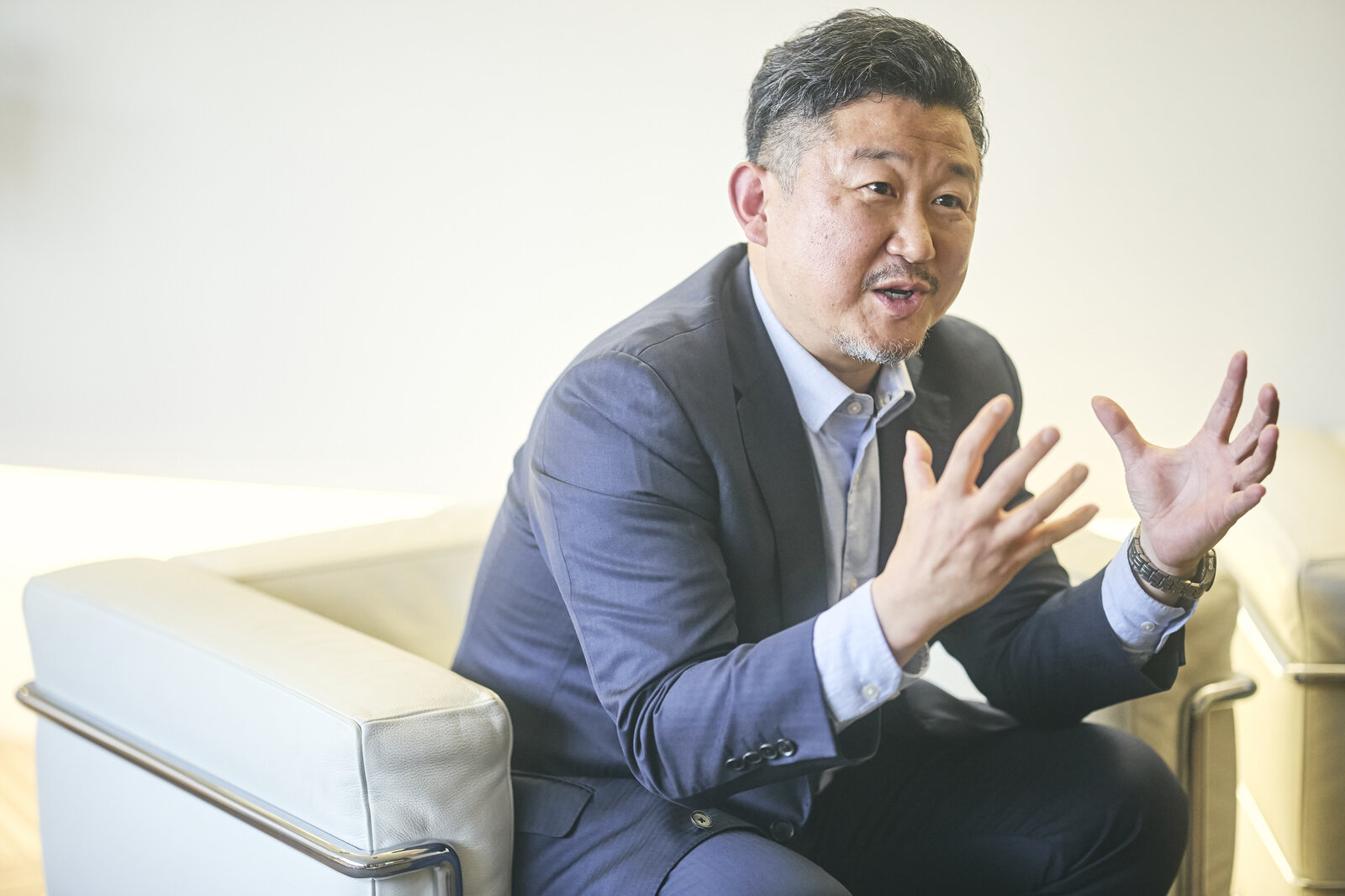
Simply put, people with passion.
Also, many of the project owners who succeed are genuine people. Perhaps this comes from observing the genba and engaging with customers.
Finally, you need someone who can take action to solve problems. I think these are the three traits we are looking for.
B-pro submissions for this fiscal year will close on June 30. They will weave stories of new endeavors, of hearts being moved while confronting the needs of others.
The next such story could be yours.



